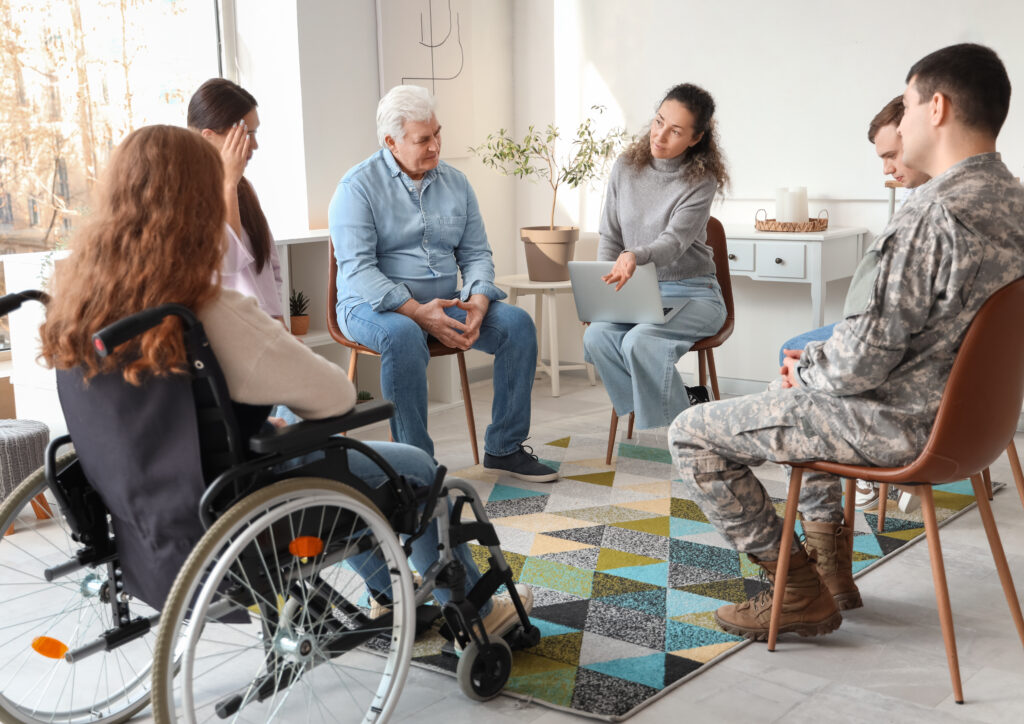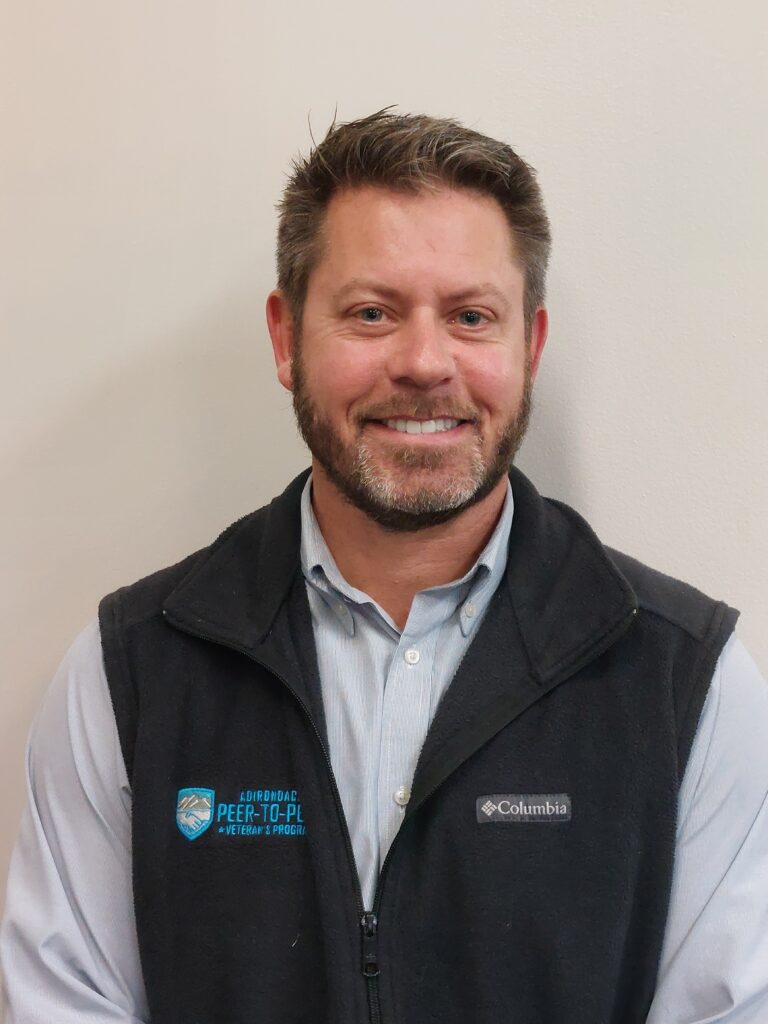Building a Bridge Between People
How a former musician connects veterans to each other – and local services.
By: Megin Potter

The Beatles, Steely Dan, and jazz culture inspired a young Jeremy Duers to pursue the fine arts at the Crane School of Music after graduating from the Lake George Central School District. Failing to secure full-time gigs in local orchestras however, led to Jeremy joining the US Marines, like his father had before him thirty-nine years earlier.
“At the time, it was a great option,” said Jeremy.
After passing his physical fitness exam and nailing the audition for an orchestral percussionist at the Schuylerville High School auditorium, Jeremy bypassed the traditional route prescribed for musicians. On September 14th, 1999, he shipped out to the US Marine Corps recruit training depot in Parris Island, S.C. After Marine Combat Training in North Carolina, he went immediately to his first duty station at the Logistics Base in Albany, GA.

“Get Ready, Marines!”
The Marine Band unit Jeremy was in was the largest on the base. Their mission: to bridge the gap between the military and civilian populations. Playing an important role as goodwill ambassadors, they performed in ceremonies and events within the country and abroad (with notable performances in Scotland, Iceland, and the US territories).
A lot changed after the September 11, 2001, terrorist attacks, remembers Jeremy. Just three hours after seeing the second plane crash into the World Trade Center building in New York City, his unit mustered up; rifles and supplies at the ready.
As a member of the Anti-Terrorism Force Protection (ATFP) unit, Jeremy was among the forces assigned to defend the Georgia base which was, at the time, one of the military’s largest arms depots in the world.
A History of Conflict
In 2004, after receiving the US Navy Good Conduct Medal, a diagnosis of severe Crohn’s disease led to Jeremy’s medical discharge from the military. Married with two children, he didn’t want to go back to being a starving artist again, he said. So he started studying the history of political conflicts at SUNY Adirondack.
“I was a much better historian than I was a musician,” he explained.
Fascinated by history, particularly the Cold War, Jeremy earned an associate’s degree at SUNY Adirondack, a bachelor’s from Skidmore College, and a master’s from Union College before teaching history in Houston, TX for three years.
When he returned to Lake George in 2017, Jeremy taught 11th grade Social Studies in Granville while also coaching football and wrestling for the combined Lake George and Hadley-Luzerne school districts. In 2020, he began teaching middle school history at Hadley-Luzerne.
“As a devout Catholic, for me, it’s always been about how I can help. With teaching I was trying to help kids and give back,” he said.

Serving Those Who Served
Now, Jeremy has returned to the SUNY Adirondack campus, and as the Coordinator of Adirondack Peer-to-Peer Support Services, a Joseph P. Dwyer Project, he ensures veterans in Warren and Washington Counties have the resources they need within a supportive social network.
“This program and SUNY are a great fit. They have a number of the resources we need to accomplish our mission,” he said, whether that’s hosting a yoga or art class, bingo, or a jam band.
Along with a small (but effective!) cadre of part-time mentors and volunteers, Jeremy mans the “bat phone” taking calls from across two counties to improve the health and wellness of at-risk veterans.
Through a confidential, one-on-one, peer-to-peer approach, veterans are connected to each other and to local services, learning about opportunities and special programs for them and their families. Designed to build and sustain a social safety net, the program hopes to reach veterans suffering from the crippling social isolation that can manifest into hunger, homelessness, or death by suicide.
“There are veterans in terrible shape who are just languishing with physical, mental, and psychological problems,” Jeremy explained.
Working from what was a blank slate when he arrived, Jeremy said he’s “building the plane while flying it” and helping between 200 to 500 veterans each month with his Rolodex of resources. From providing rides to medical appointments or the grocery store, to securing resume-writing services, to helping those facing a tenuous housing situation with a place to stay, and advocating for alternative sentencing (depending on the severity of the crime). For every veteran that Adirondack Peer-to-Peer Support Services helps, the ripple effect is a force multiplier strengthening the economy, he said.
If you, or someone you know, could possibly benefit from Adirondack Peer-to-Peer Support Services, or you are interested in assisting as a coach, mentor, leader, or friend, follow them on Facebook @ADKP2P and visit https://adkpeertopeer.org.